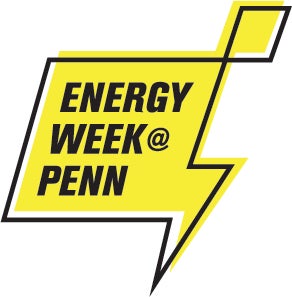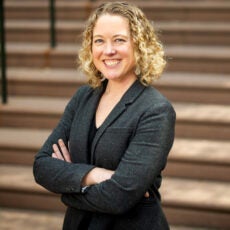Watch the recording.
Accelerating to Net Zero: Fueling the Clean Energy Transition
Event Summary
As our planet inches closer to the maximum warming target of 1.5 C, signaling a point of no return, governments across the world are called upon to accelerate climate action and set aggressive greenhouse gas emissions reduction goals. This unprecedented urgency requires us to prioritize sectors where focused action will have the most significant impact.
Cutting emissions in the building sector is key to addressing the climate crisis. Buildings contribute an even higher percentage of the United States’ GHG emissions when factoring in construction materials and refrigerants. As a result, the Biden Administration has set an ambitious goal–for all new building construction and retrofits to reach zero emissions by 2030, establishing a resilient and standard practice for our nation’s clean energy future. These efforts, led by the Department of Energy (DOE), will generate savings for consumers, expand economic opportunities, and reduce climate-related financial risk. But how will this impact the global economy, and what role does industry play?
Anna Siefken, deputy director of DOE’s Federal Energy Management Program (FEMP), discusses the Biden administration’s strategy for the clean energy transition, and what it means for our future workforce. Under President Biden’s leadership, the Department of Energy is deploying an unprecedented set of tools aimed at enabling American businesses, workers, and consumers to participate in the clean energy economy. She will also explain how FEMP enables our nation’s largest energy consumer–the federal government–to leverage its annual purchasing power of $630 billion to transition its portfolio of 300,000 buildings totaling $3B square feet to carbon pollution-free electricity and its 600,000 cars and trucks to zero-emission vehicles. Learn how these programs are driving a boom in American manufacturing, creating new green jobs, fueling economic growth, and helping the United States lead the world toward a clean energy future.
This event is a part of Energy Week at Penn, a week of energy-focused events across Penn’s campus. Browse and register for other Energy Week events: energyweek.upenn.edu

View the Presentation
Accelerating to Net-Zero: Fueling the Clean Energy Transition
Anna J. Siefken
Anna J. Siefken
Deputy Director, Federal Energy Management Program (FEMP), U.S. Department of EnergyAnna Siefken is the deputy director of DOE’s Federal Energy Management Program. She has spent her career making the business case for industrial efficiency, climatetech innovation, and building performance as a means to address the world’s energy challenges and the global urgency of climate change.
Ella Siefken
Chemical and Biomolecular Engineering, School of Engineering and Applied ScienceElla Siefken is a Chemical and Biomolecular Engineering student in the School of Engineering and Applied Science. She has three years of research and professional engineering experience focused on industrial energy generation, specifically nuclear at Westinghouse Electric Company.
Sanya Carley
Mark Alan Hughes Faculty DirectorSanya Carley is the Faculty Director of the Kleinman Center. She is also Vice Provost for Climate Science, Policy, and Action at Penn and Presidential Distinguished Professor of Energy Policy and City Planning at the Stuart Weitzman School of Design.



